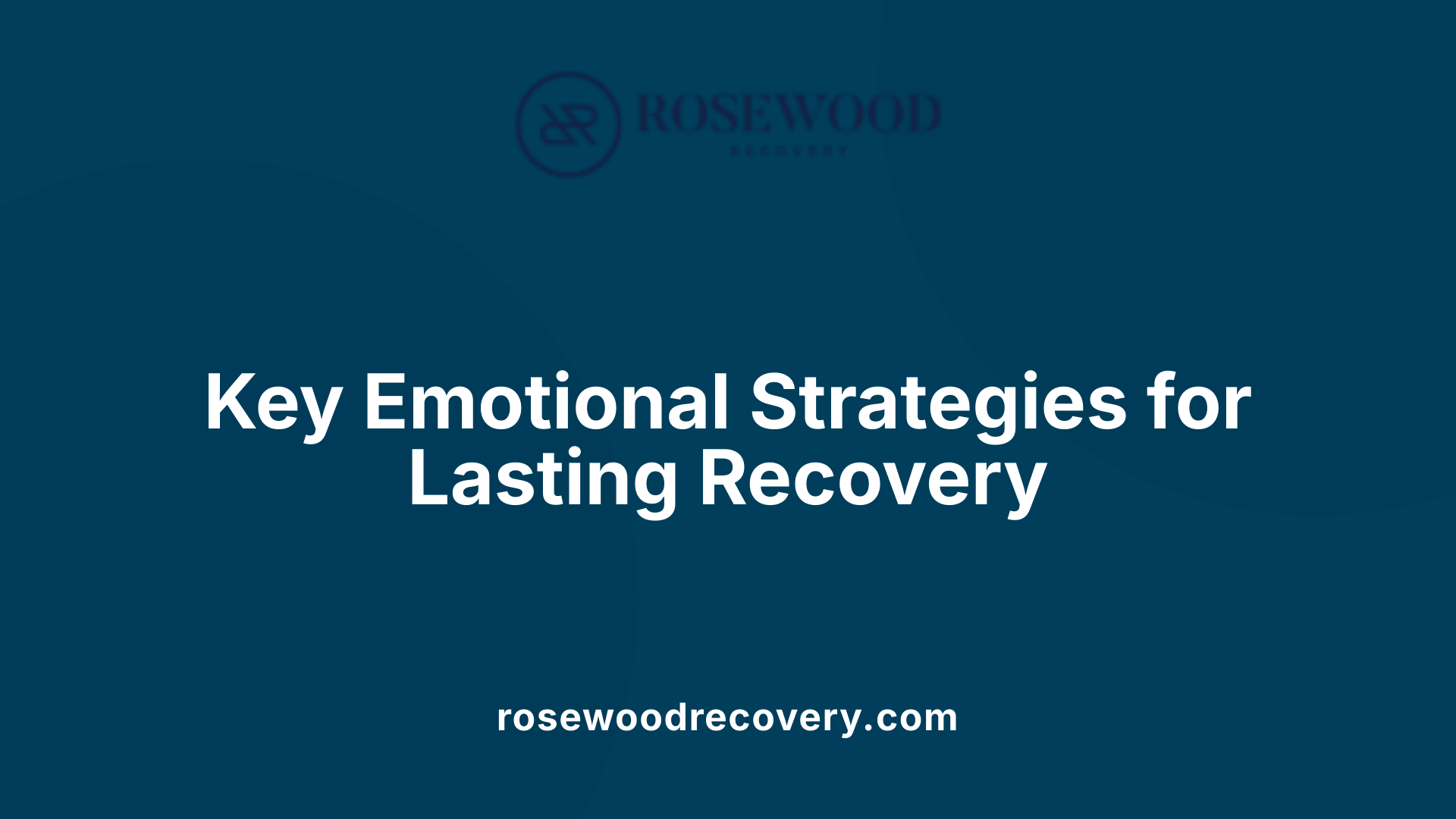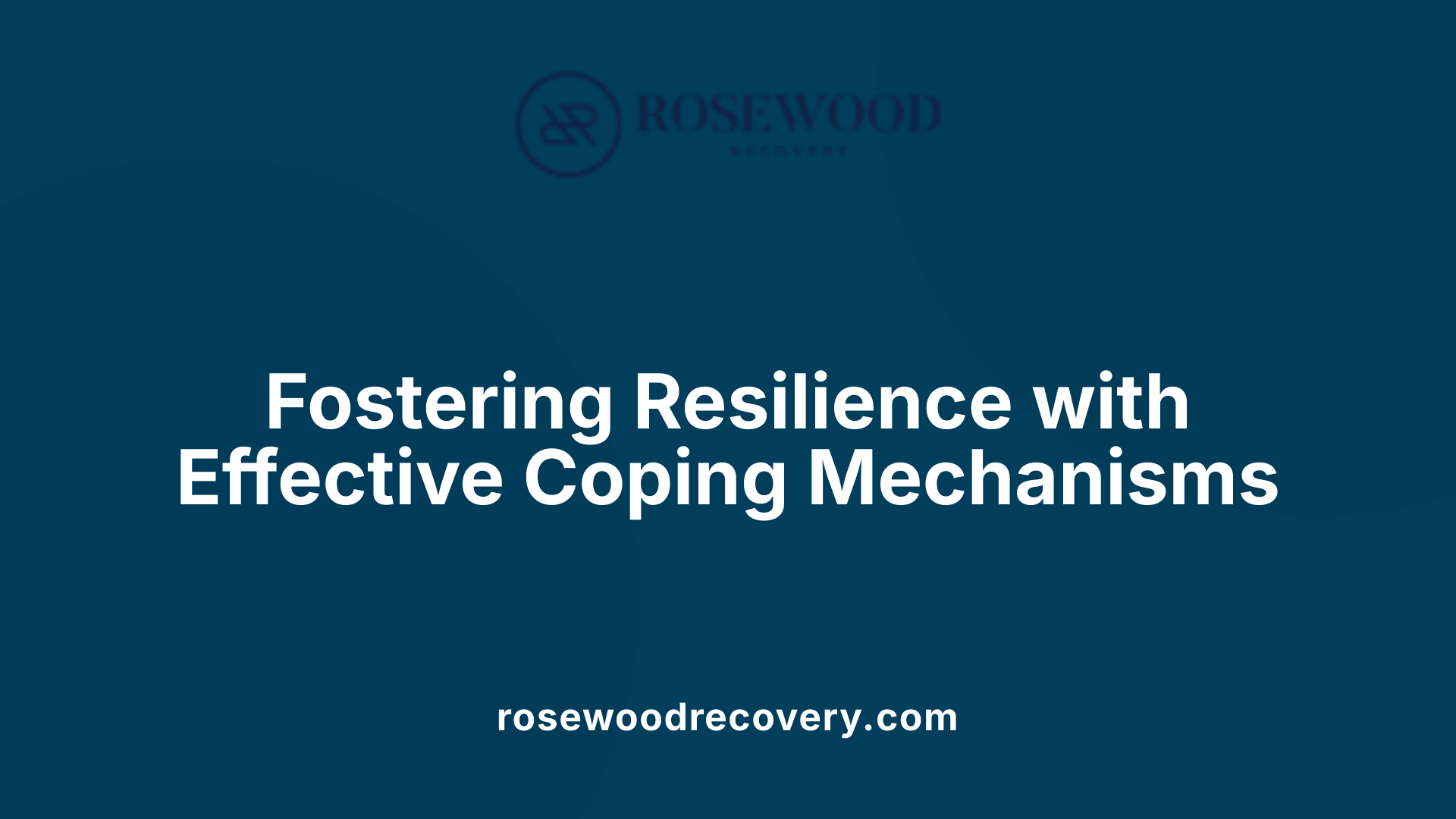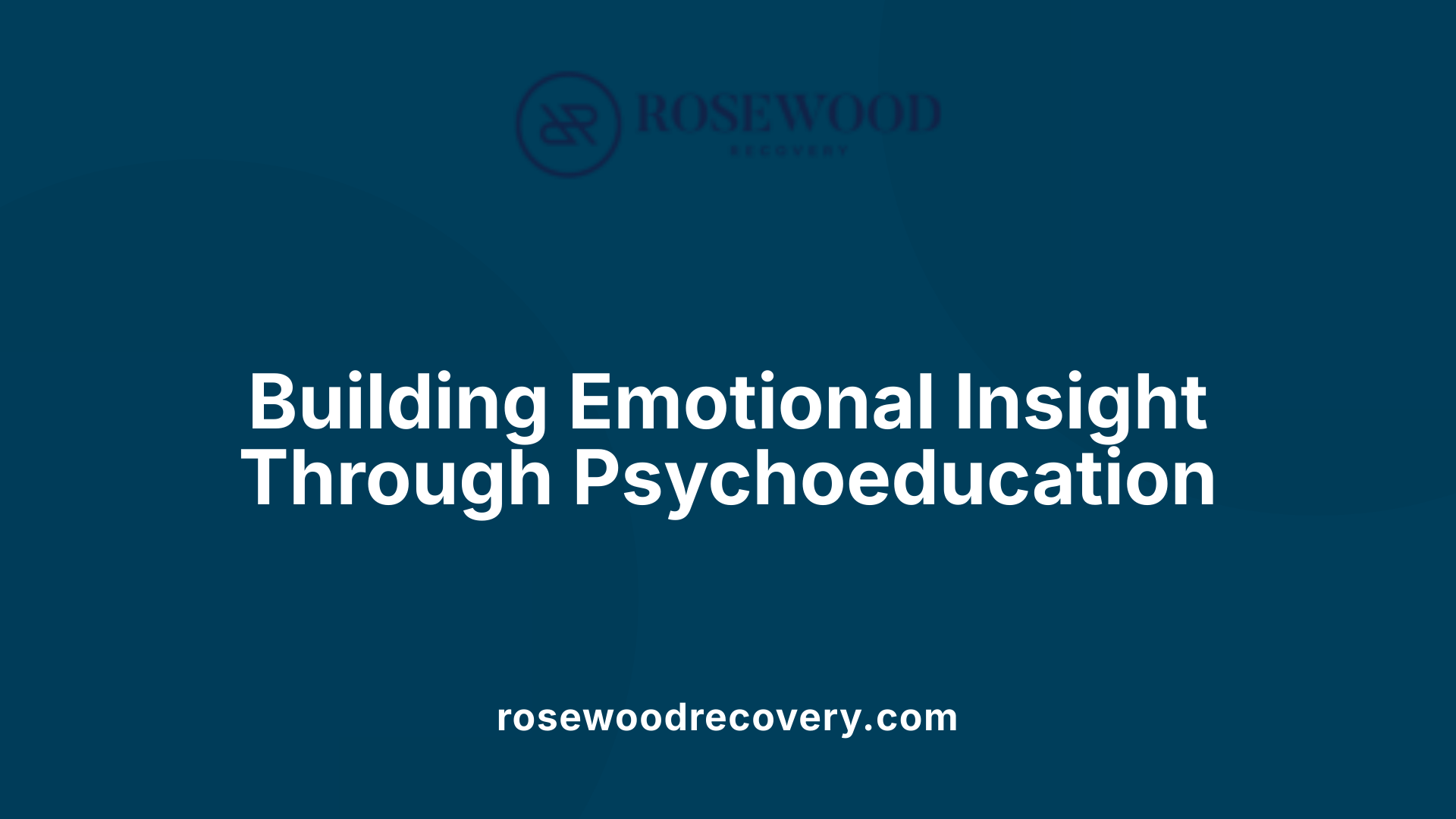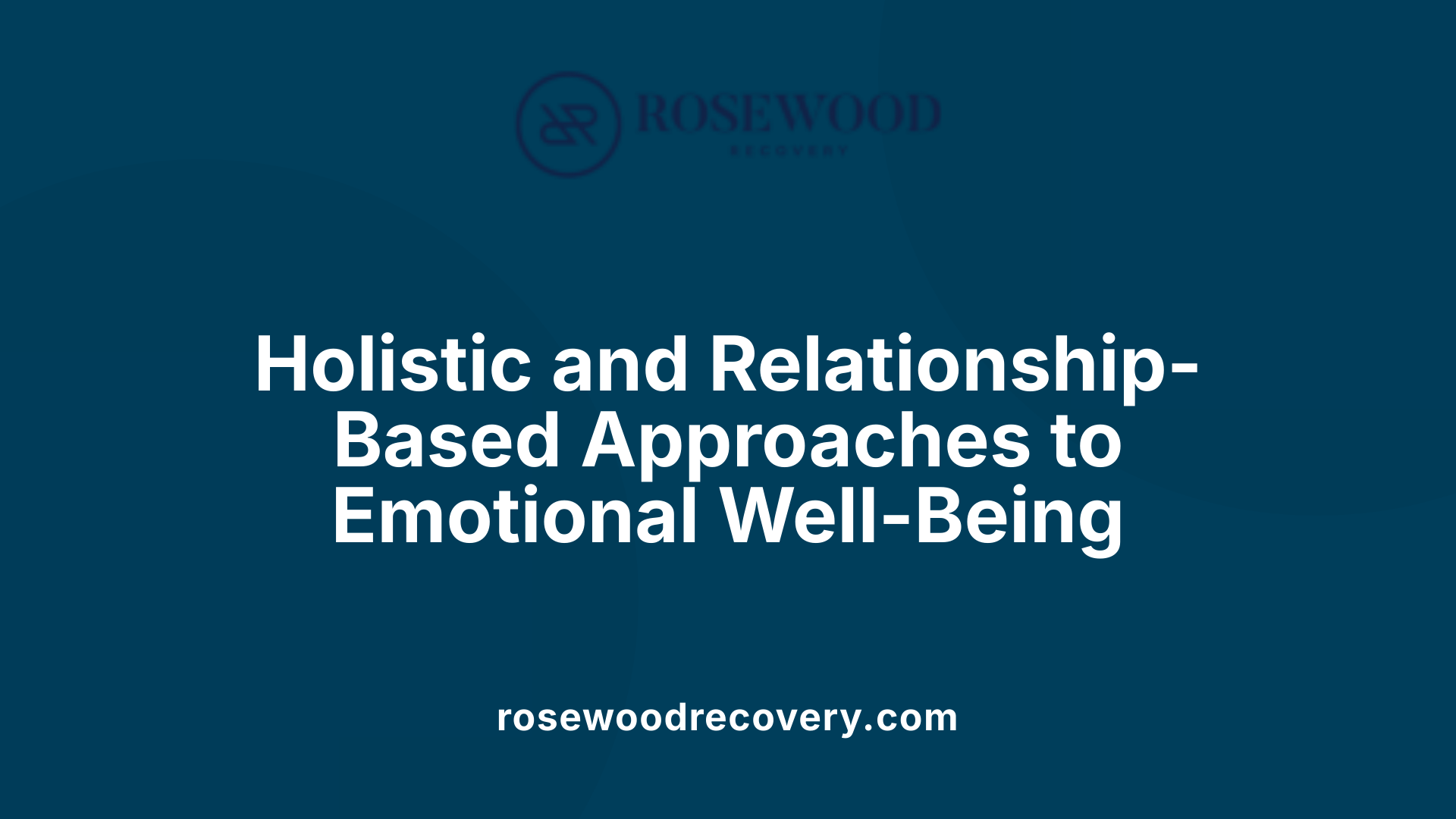Understanding the Emotional Foundations of Addiction Treatment
Outpatient addiction therapy emphasizes the importance of emotional tools and strategies to help individuals manage their feelings, develop resilience, and maintain sobriety. By integrating evidence-based therapies, expressive arts, psychoeducation, and holistic practices, outpatient programs foster emotional regulation and expression, which are crucial for a successful recovery journey.
Core Emotional Strategies in Outpatient Addiction Therapy

What are common emotional tools and strategies used in outpatient addiction therapy?
Outpatient addiction therapy incorporates a range of emotional tools designed to support individuals throughout their recovery journey. Central to these strategies is developing emotional awareness. Techniques like self-reflection and journaling help clients identify emotional triggers that may lead to cravings or relapse. Recognizing these triggers is vital for managing emotional responses constructively.
Mindfulness and meditation practices also play a prominent role in outpatient settings. These techniques improve self-regulation, allowing individuals to stay present and aware of their emotional states. Regular mindfulness exercises can reduce stress, enhance emotional resilience, and decrease the likelihood of turning to substances during moments of distress.
Therapies such as cognitive-behavioral therapy (CBT) and dialectical behavior therapy (DBT) are widely used to teach vital emotional management skills. CBT helps clients challenge negative thoughts and develop healthier coping mechanisms, while DBT emphasizes emotional regulation, distress tolerance, and interpersonal effectiveness.
Expressive arts therapies, including music therapy, art therapy, and journaling, facilitate emotional expression and processing. These creative outlets help individuals explore their feelings in a safe environment, fostering insight and healing.
Building empathy and improving communication skills are essential components of outpatient programs. Learning to express emotions effectively and listen empathetically enhances relationships and social support systems.
Finally, support networks—such as group therapy and family involvement—provide social connection, accountability, and encouragement. Sharing experiences with peers and loved ones creates a community of understanding that reinforces emotional stability and promotes sustained recovery.
Fostering Emotional Regulation and Expression Skills
How can patients develop emotional regulation and expression skills during outpatient treatment?
Patients in outpatient addiction recovery programs can improve their emotional skills through a variety of evidence-based therapies. Dialectical Behavior Therapy (DBT), Cognitive-Behavioral Therapy (CBT), and Emotion-Focused Therapy (EFT) are particularly effective, as they teach practical strategies for managing strong emotions like anger, sadness, or anxiety.
Mindfulness and meditation are also integral components. These practices enhance self-awareness, helping individuals observe their emotional responses with acceptance and without judgment. This greater awareness allows for better control over reactions and reduces impulsivity.
Expressive arts therapies such as music, art, and dance provide creative outlets for emotional release. These activities enable individuals to process feelings safely and constructively, often revealing underlying issues that might be hard to communicate verbally.
Psychoeducation plays an important role by informing patients about emotional responses, common triggers, and healthy coping mechanisms. This understanding fosters a proactive approach to emotional regulation, helping individuals recognize early signs of distress and intervene effectively.
In addition to individual therapies, group and family therapy sessions are valuable. They build communication skills, promote emotional awareness, and strengthen social support systems, which are all vital for ongoing emotional health. Engaging with peers and family members helps normalize emotions and encourages mutual understanding.
Altogether, these approaches equip patients with the tools to identify, express, and regulate their emotions effectively, supporting sustained recovery and healthier relationships.
Supporting Emotional Sobriety and Coping Skills

What approaches support emotional sobriety and coping skill development in addiction recovery?
Building emotional sobriety requires a range of therapeutic and practical strategies that help individuals process feelings effectively and develop resilience against triggers.
One fundamental approach is processing and accepting emotions. Techniques such as cognitive-behavioral therapy (CBT), psychodynamic therapy, and journaling assist individuals in recognizing, understanding, and embracing their emotional states. This acceptance fosters healthier relationships with oneself and others, creating a foundation for lasting recovery.
Developing healthy coping mechanisms is crucial. Mindfulness and meditation practices improve self-awareness and help manage stress and negative emotions. Deep breathing exercises and relaxation techniques can calm the mind during intense moments, reducing the impulse to turn to substances.
Peer support groups and 12-step programs offer vital social and emotional reinforcement. Sharing experiences within a trustworthy community provides encouragement, reduces feelings of isolation, and reinforces commitment to sobriety.
Addressing underlying trauma, such as childhood adversity or past emotional wounds, is also important. Therapeutic interventions like EMDR or family therapy can uncover and resolve these issues, replacing maladaptive coping behaviors with healthier responses.
Finally, employing cognitive reappraisal and distraction methods during emotional distress supports emotional flexibility. Reframing negative thoughts or engaging in activities like physical exercise, creative arts, or social engagement helps divert focus from cravings and enhances emotional regulation.
Through these combined strategies, individuals can foster emotional stability, resilience, and a sustainable path to recovery.
Therapeutic Methods Enhancing Emotional Well-Being
What therapeutic methods are effective in improving emotional health within outpatient addiction programs?
Outpatient addiction treatment programs utilize a variety of evidence-based therapies to support emotional well-being. Cognitive-Behavioral Therapy (CBT) is central, helping individuals recognize and alter negative thought patterns while teaching practical coping skills to manage stress and cravings.
Dialectical Behavior Therapy (DBT) complements CBT by focusing on emotional regulation, distress tolerance, and interpersonal effectiveness. It is especially effective for managing intense emotions, reducing impulsivity, and preventing relapse.
Group therapy plays a vital role by creating a supportive environment where patients can share experiences, improve social skills, and foster a sense of community. This fellowship can significantly boost emotional resilience and reduce feelings of isolation.
Expressive therapies such as journaling, music therapy, and art therapy provide outlets for emotional expression. These approaches help clients process feelings, develop self-awareness, and build a healthier relationship with their emotions.
Psychoeducational programs educate clients about addiction, emotional responses, and coping strategies, empowering them with knowledge that supports emotional stability.
Family therapy is also a key component, helping improve communication, resolve conflicts, and rebuild trust within personal relationships.
Motivational Enhancement Therapy (MET) works to increase a client's motivation to change, reinforcing commitment to recovery efforts.
Community-based approaches, including the community as a method in therapeutic communities, promote social support and modeling, which are crucial for emotional resilience.
Incorporating these methods creates a comprehensive framework that addresses emotional challenges, prevents relapse, and fosters long-term sobriety and mental health.
Role of Expressive Therapies in Emotional Regulation

How do expressive therapies like journaling and music therapy support emotional regulation in addiction recovery?
Expressive therapies such as journaling and music therapy play a vital role in helping individuals regulate their emotions during recovery from addiction. By offering creative outlets, these therapies enable people to process complex feelings, reduce emotional stress, and build self-awareness. Journaling encourages individuals to externalize their thoughts and feelings, making it easier to identify emotional triggers and patterns that contribute to substance use.
Music therapy, on the other hand, engages neural networks associated with emotion regulation and reward. Listening to, creating, or performing music can be deeply soothing, helping to decrease anxiety and improve mood. These approaches activate pathways in the brain involved in stress reduction and emotional resilience, fostering neural healing and supporting mental stability.
In addition to managing emotions, expressive therapies can enhance motivation for ongoing treatment and help rebuild a positive sense of identity that may have been lost due to addiction. They provide safe spaces for emotional exploration, allowing individuals to confront and process trauma or negative feelings without judgment or risk of relapse.
Overall, integrating expressive arts like journaling and music therapy into addiction treatment offers a supportive environment for emotional growth and regulation, addressing psychological challenges while promoting recovery resilience.
Psychoeducation and Its Role in Emotional Development

What is the role of psychoeducation in developing emotional awareness and resilience during outpatient addiction treatment?
Psychoeducation is an essential component of outpatient addiction therapy, focusing on increasing clients’ understanding of their emotional and psychological states. It provides valuable insights into how addiction affects brain function and emotional regulation, helping individuals recognize the complex interplay between substance use and emotional responses.
Through education, clients learn to identify emotional triggers such as relationship challenges, job stress, or past trauma that may lead to cravings or relapse. Understanding these triggers empowers them to develop proactive coping strategies, including mindfulness practices, cognitive-behavioral techniques, and emotion regulation skills.
Moreover, psychoeducation enhances emotional intelligence by teaching clients about their emotional responses, the importance of validation, and ways to manage intense feelings without resorting to substances. Psychoeducational content often covers how mental health issues like depression or anxiety coexist with addiction, emphasizing the importance of holistic recovery.
Incorporating neuroscience insights into psychoeducation further deepens awareness, illustrating how addiction impacts the brain's reward and stress systems. This understanding fosters self-awareness, resilience, and motivation for sustained change.
Finally, psychoeducation promotes personal responsibility, encouraging clients to actively participate in their recovery journey. When clients understand the science behind their emotional experiences and addiction, they are better equipped to implement effective coping strategies, maintain motivation, and prevent relapse.
| Aspect | Description | Impact |
|---|---|---|
| Understanding addiction | Explains biological and psychological factors | Promotes acceptance and motivation |
| Recognizing triggers | Identifies emotional and environmental cues | Enables preemptive coping |
| Emotional regulation techniques | Teaches mindfulness, CBT, DBT | Improves self-control |
| Neuroscience insights | Demonstrates brain impact of addiction | Fosters self-awareness |
| Empowerment | Provides knowledge for personal management | Builds resilience |
By combining scientific education with practical strategies, psychoeducation significantly supports emotional development and resilience, making it a vital part of comprehensive outpatient addiction treatment.
Managing Emotional Triggers and Challenges Effectively
How do individuals in outpatient addiction recovery identify their personal triggers?
Recognizing personal triggers is an essential step in managing emotional challenges. Many recovery programs recommend self-awareness tools such as journaling or maintaining trigger diaries. These practices help individuals pinpoint situations or feelings—like stress, loneliness, anger, or fatigue—that increase the risk of cravings or relapse.
What coping strategies are effective for handling triggers?
Once triggers are identified, employing coping strategies such as mindfulness and deep breathing can be highly beneficial. These techniques promote emotional calmness and help mollify intense feelings. Engaging in hobbies, maintaining social support networks, and practicing relaxation exercises further support healthy responses.
How do therapies aid in managing triggers?
Therapies like cognitive-behavioral therapy (CBT) are instrumental in helping individuals recognize unhelpful thoughts linked to their triggers. Participating in support groups offers shared experiences and emotional encouragement, fostering resilience and accountability.
Why is developing contingency plans and avoiding certain situations important?
Creating contingency plans involves preparing strategies to navigate high-risk environments, such as social gatherings associated with past substance use. Avoidance of these situations or having a plan to cope if encountered reduces the chances of relapse.
How can internal triggers be managed?
Internal triggers like negative thoughts or emotional distress require dedicated emotional management techniques. Practicing mindfulness, emotional regulation skills, and ensuring physical health through proper nutrition, sleep, and self-care reinforce emotional stability.
| Aspect | Strategy | Benefits |
|---|---|---|
| Trigger identification | Journaling, trigger diaries | Awareness of personal risk factors |
| Immediate coping | Mindfulness, deep breathing, relaxation exercises | Reduces emotional reactivity |
| Therapy participation | CBT, support groups | Recognizes and reframes unhelpful thoughts |
| Relapse prevention | Contingency plans, avoiding high-risk situations | Minimizes exposure to triggers, prepares response |
| Internal emotional triggers | Emotional regulation, self-care practices | Builds resilience and emotional stability |
Understanding and managing emotional triggers are critical components of sustained recovery. Proper identification, strategy development, and ongoing support help individuals maintain their sobriety and build a healthier emotional life.
Integrating Emotional Tools into Holistic and Relationship-Based Therapy

How can emotional tools be integrated into holistic, individual, and couples therapy within outpatient addiction programs?
In outpatient addiction treatment, emotional tools such as mindfulness, validation, distress tolerance, and emotional regulation are vital for supporting recovery. To maximize their impact, these tools are customized to fit each individual's unique needs, considering their emotional history and current challenges.
Holistic approaches address mental, physical, and social aspects of health. Therapists blend emotional tools within therapies like DBT, CBT, and psychodynamic therapy to help clients process past traumas, manage emotions, and develop healthy coping strategies. For example, mindfulness exercises can be integrated into daily routines to increase self-awareness and emotional balance.
Couples therapy adds a relational layer, teaching partners active listening, emotion identification, and conflict resolution skills. This strengthens emotional bonds and fosters mutual understanding during recovery.
Digital tools such as mood-tracking apps allow clients to monitor their emotional states and recognize patterns. Biofeedback devices can teach relaxation techniques, while multimedia resources like videos and guided meditations enhance psychoeducation and emotional awareness.
Group therapy sessions serve as platforms for practicing emotional regulation and social skills. Activities like role-playing and emotion recognition exercises promote interpersonal effectiveness and resilience.
Supporting emotional growth also involves structured activities like emotion differentiation and perspective-taking exercises. These boost emotional intelligence and help clients navigate complex social situations.
Incorporating safe, digital communication channels enables ongoing support from therapists and caregivers, creating a network that maintains emotional stability outside sessions.
By integrating these emotional tools across individual, group, and couples therapies, outpatient programs foster a comprehensive environment conducive to sustained recovery and emotional health.
Nurturing Emotional Resilience for Sustained Sobriety
In outpatient addiction therapy, employing a diverse set of emotional tools—ranging from evidence-based therapies like CBT and DBT to expressive arts, psychoeducation, and holistic practices—enables individuals to develop essential emotional regulation and expression skills. These strategies help navigate triggers, manage intense feelings, and build resilience, ultimately fostering emotional sobriety and supporting long-term recovery. When integrated thoughtfully into individual, group, and couples’ therapies, these tools strengthen emotional intelligence, improve interpersonal relationships, and empower clients to sustain their sobriety beyond formal treatment. A comprehensive, empathetic approach that continuously cultivates emotional awareness and resilience is vital in transforming addiction treatment from mere abstinence to a holistic healing journey.
References
- Dialectical Behavior Therapy for Emotional Regulation in Addiction
- 5 Tools for Emotional Sobriety in Recovery | Ashley Treatment Center
- Addiction Treatment Methods | Evidence-Based Practices
- Chapter 8. Intensive Outpatient Treatment Approaches - NCBI
- Emotion regulation in substance use disorders: a systematic review ...
- Neuro-Emotional Technique (NET) - Avery Lane
- [PDF] Counselor's Treatment Manual - SAMHSA Library
- Substance Use Disorder (SUD): Symptoms & Treatment
- Music Therapy For Substance Abuse Treatment
- What emotional tools are taught in Trinity Behavioral Health's ...

.jpeg)
.jpeg)

